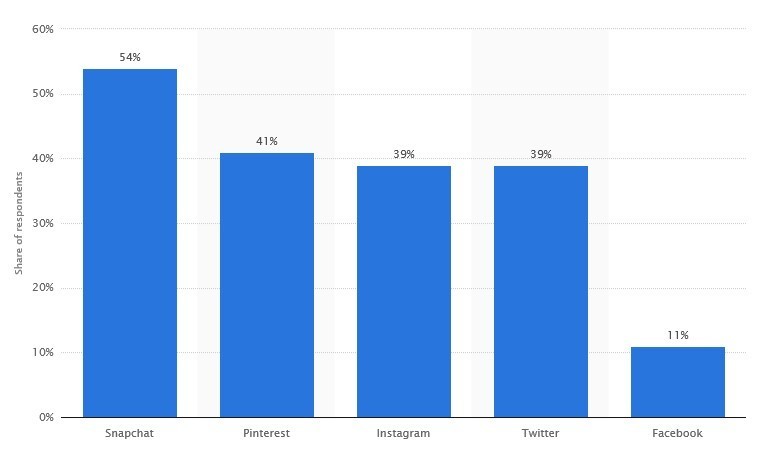The reason millennials aren’t happy at work

Millennials are more connected than any previous generation.
Image: REUTERS/Phil Noble
Stay up to date:
Future of Work
Millennials face numerous challenges, from record levels of debt to a rapidly evolving employment market. But it seems that much of the stress and anxiety reported by twenty-somethings is caused by something else: ruthless comparison with peers.
In a study published in the Harvard Business Review, which involved hundreds of interviews with young people in the UK, Emerson Csorba, found the same story emerging again and again.
Csorba, director of the consultancy Gen Y and a World Economic Forum Global Shaper, reported one millennial describing the challenge like this, “If we are not doing something exceptional or don’t feel important and fulfilled for what we are doing, we have a hard time.”
Where is the pressure coming from?
With millennials more connected than any previous generation, opportunities to compare levels of success are ubiquitous, creating anxiety and insecurity.
Csorba identified three major factors putting pressure on Millennials.
1. Misrepresenting achievements on social networks.
The accomplishments of peers, shown on social media, are a constant prompt to examine millennials’ own successes or failures. The problem is made much worse by the fact that only positive achievements are posted – you only ever see the good stuff.
Even though everyone knows that social media is a kind of PR feed of people’s lives, when you spend so much time online, these messages can easily become overpowering.

1. Media stories of hyper-successful millennials
We all love success stories. There is a human fascination with extraordinarily successful people. The growth of tech companies like Facebook makes it seem possible for young people to become billionaires overnight.
Csorba notes the prevalence of lists such as Forbes 30 Under 30 which highlight the most successful young people in their field. While meteoric rises do, of course, happen, they are the exception. Hard work and failures are rarely mentioned.
2. The number of possible career paths and constant striving to achieve potential
The number of options open to millennials is liberating, but it can also be overwhelming. The research found that the growth of entrepreneurship as an accepted "mainstream" career choice meant that young people were always exploring alternative options and wondering, "what if?"
Career advice, from TED Talks to online articles, also often seem to suggest that by taking apparently simple steps, anyone can be successful.
Interviewees remarked that thinking about hypothetical future selves busily pursuing an alternative career made them dissatisfied, as they believed that the door was always open to fulfill their potential to a greater degree elsewhere.
Social media again plays a role in making these self-help articles ever-present in millennials’ lives. With research showing how few millennials are not on social media, the effect is perhaps not that surprising.
This chart shows the share of millennials in the United States without an account on selected social networks as of August 2015:

How can we combat the problem?
Csorba suggests three ways to address the problem.
1. Identify the ‘Golden Threads’
These are the things that connect our own hobbies and activities. Identifying what engages us, rather than looking at other people's lives, helps to focus on what drives us. As Csorba puts it: “The threads help us cultivate values and a sense of groundedness in an uncertain world.”
2. Take the long view
Instead of focussing on where you are right now, look to the future. Instant success is a reality for a tiny minority. Most people build careers over a lifetime and find it all the more satisfying for doing so. Csorba says this applies to millennials more than any previous generation. “Lengthening lifespans means that millennials should think strategically about their long-term careers and life goals and what it will take to achieve them over 30 to 50 years rather than three to five years.”
3. Embrace solitude
Interviewees in the study often commented that having a 24/7 connection to mobile devices and laptops was psychologically exhausting.
We all need time offline to contemplate our lives and our wellbeing. One study found that in the United States 58% of smartphone users checked their device every hour. That figure rose to 68% for millennials.

For millennials especially, peer comparison is intense, it is immediate and it is constant.
As Csorba concludes: “Millennials can be proactive in approaching these challenges by reflecting on what motivates them, thinking about the long term, and setting aside time for solitude — steps that together reinforce strong internal standards of success and bring focus to a person’s work life.”
Have you read?
Don't miss any update on this topic
Create a free account and access your personalized content collection with our latest publications and analyses.
License and Republishing
World Economic Forum articles may be republished in accordance with the Creative Commons Attribution-NonCommercial-NoDerivatives 4.0 International Public License, and in accordance with our Terms of Use.
The views expressed in this article are those of the author alone and not the World Economic Forum.
Related topics:
Forum Stories newsletter
Bringing you weekly curated insights and analysis on the global issues that matter.
More on Industries in DepthSee all
Giorgio Parolini
July 7, 2025
Ibrahim Odeh and Oliver Tsai
July 2, 2025
Erik Crouch
July 1, 2025
Francisco Betti
May 9, 2025






